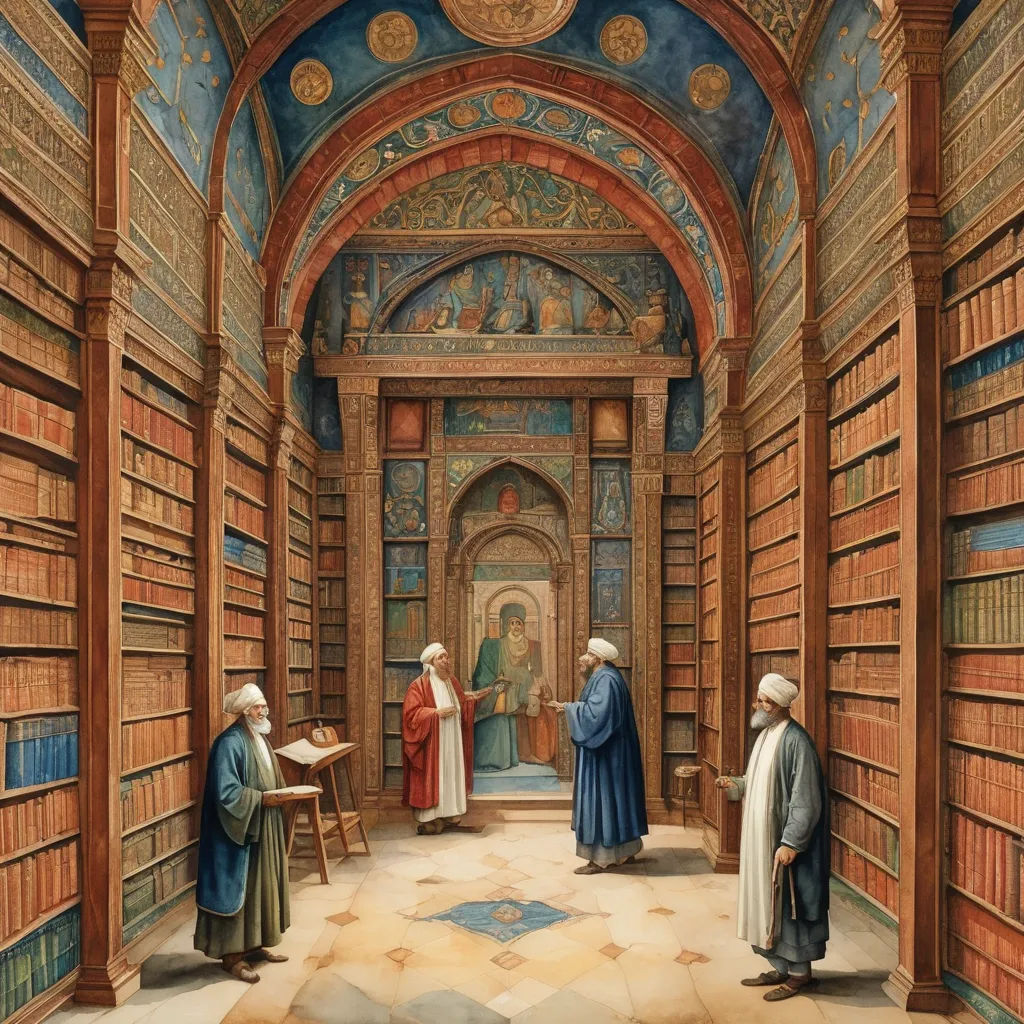
The Abbasid Caliphate
By عبدالله

20 Feb, 2024

In the heart of the Abbasid Caliphate, a young adventurer named Ilyas set forth on a journey that would define his life. His eyes sparkled with curiosity and determination as he took his first step into this golden era.
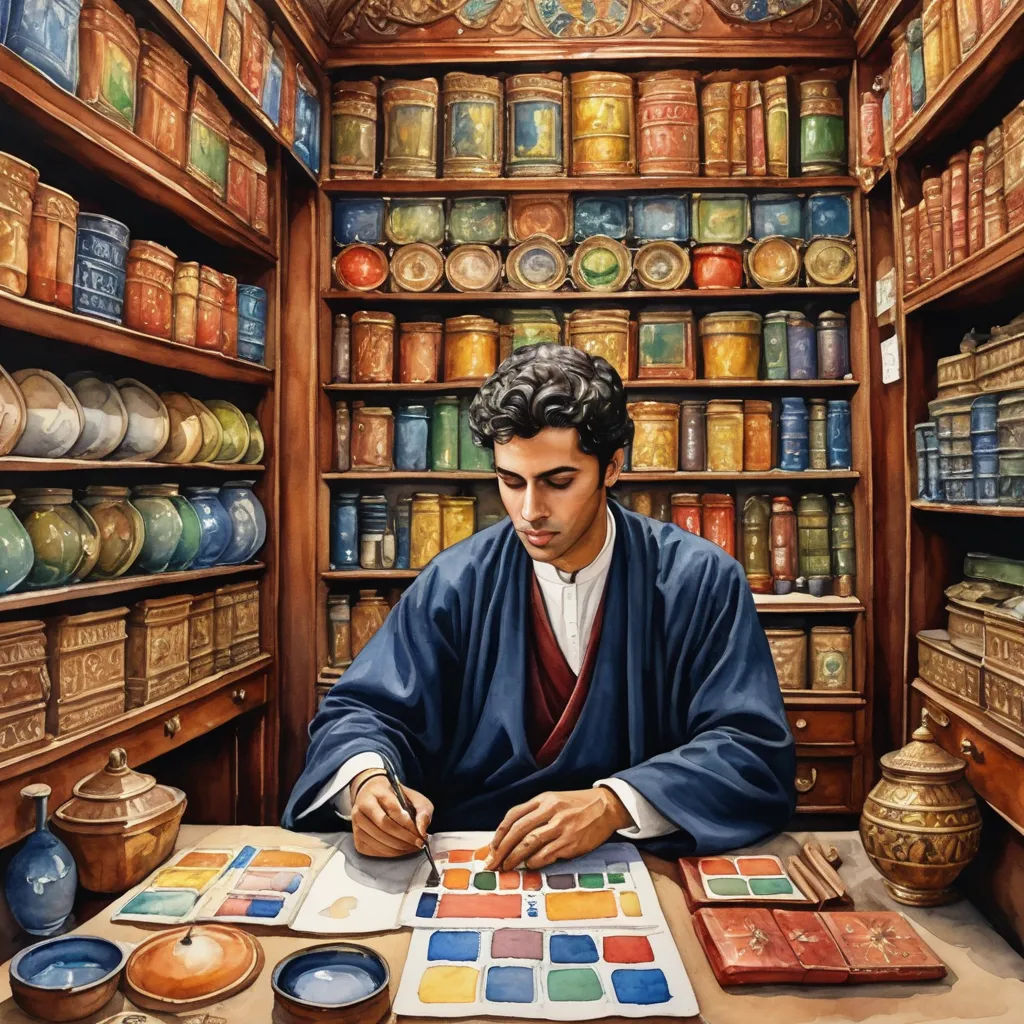
Ilyas was a gifted scholar and had a deep interest in the sciences and arts, a passion fueled by the intellectual richness of the era. His quest was to contribute to the vast wealth of knowledge flourishing in the Caliphate.
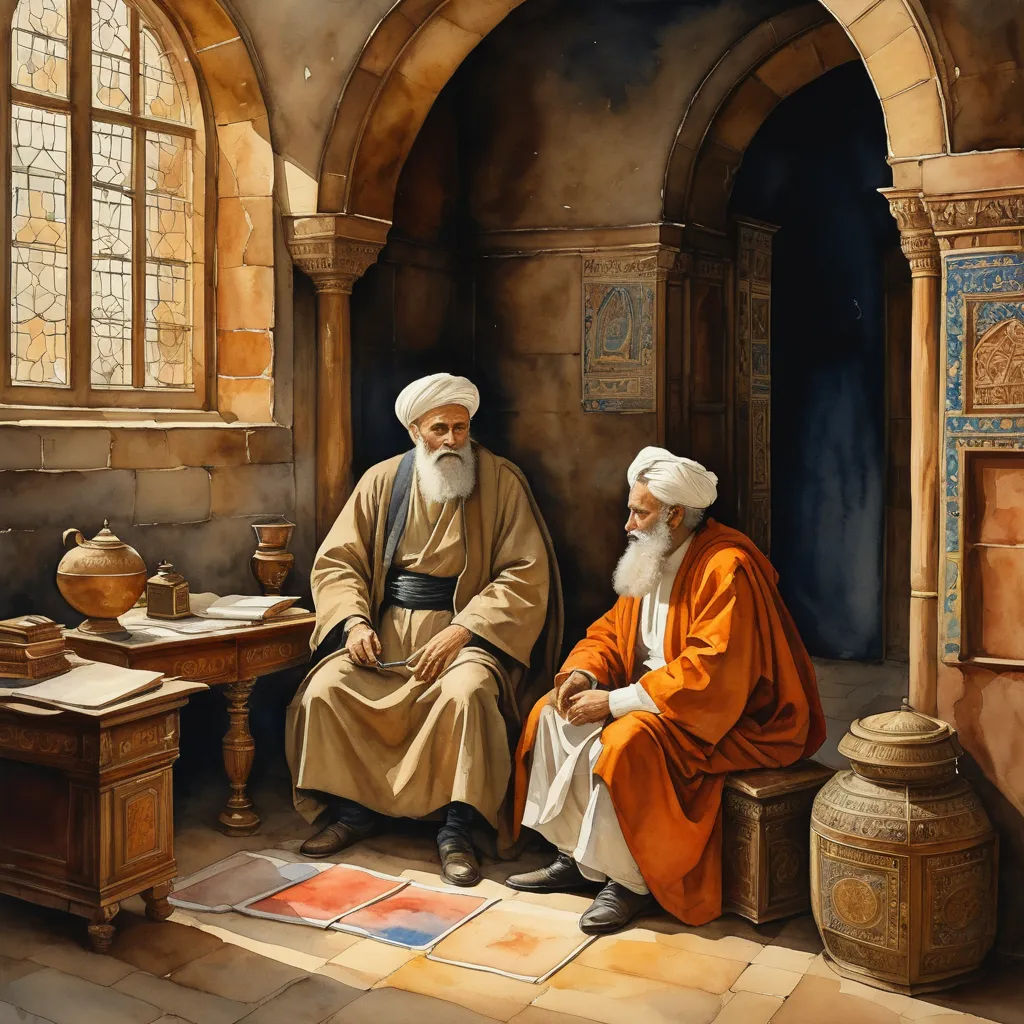
His first stop was the House of Wisdom in Baghdad, a center of learning and intellectual discourse. Here he met Al-Khwarizmi, a celebrated mathematician and astronomer of the time.
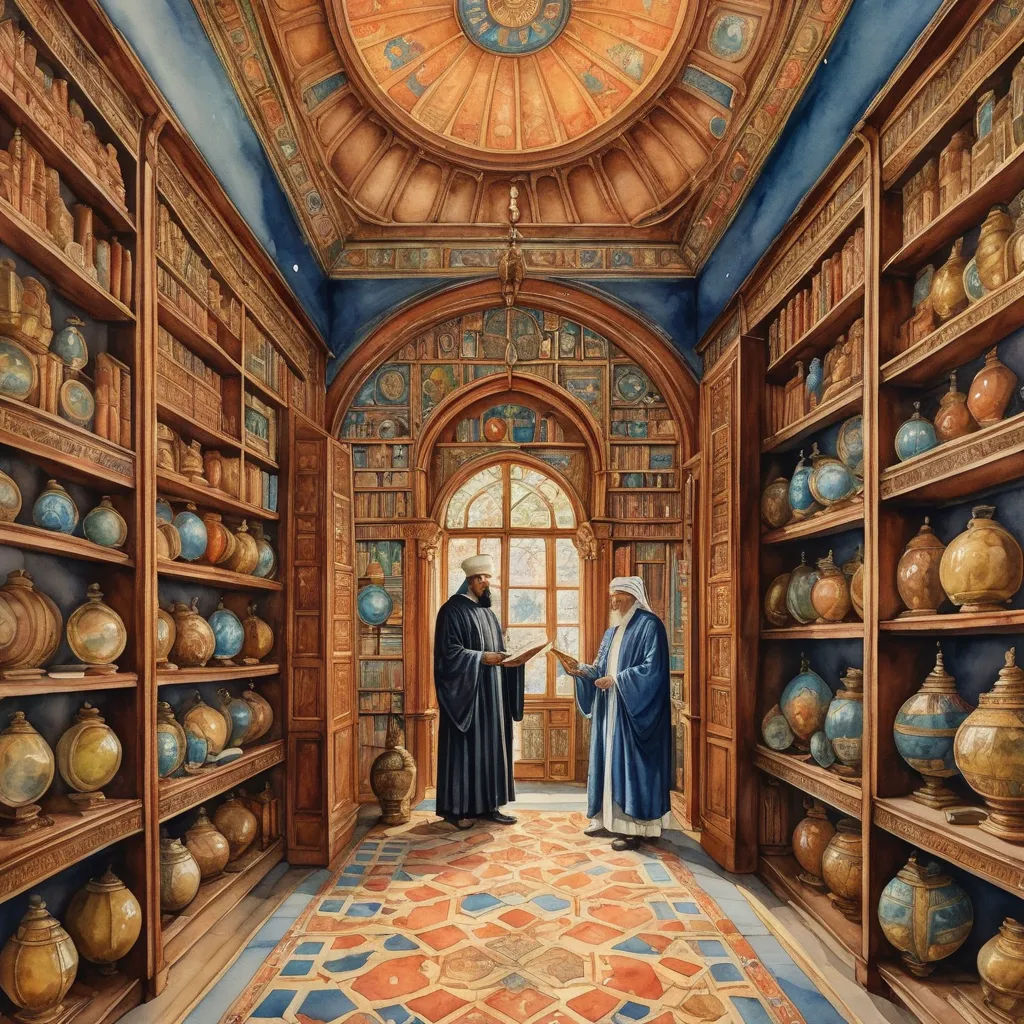
Under Al-Khwarizmi's mentorship, Ilyas delved deep into mathematics, astronomy, and geography. He was awestruck by the genius of his mentor and the vast knowledge available in the House of Wisdom.
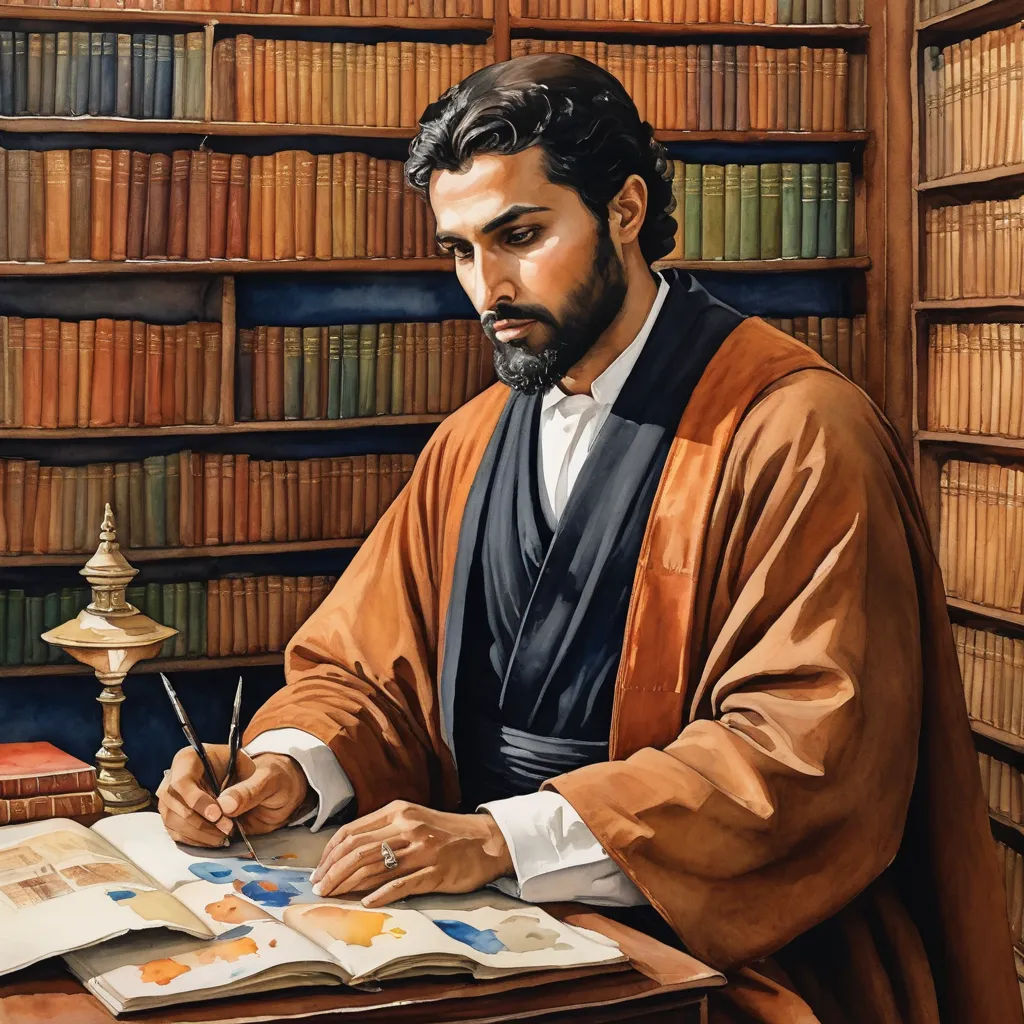
Inspired by Al-Khwarizmi's teachings, Ilyas began to formulate his own theories. Days turned into nights as he tirelessly worked, his mind whirling with equations and theories.
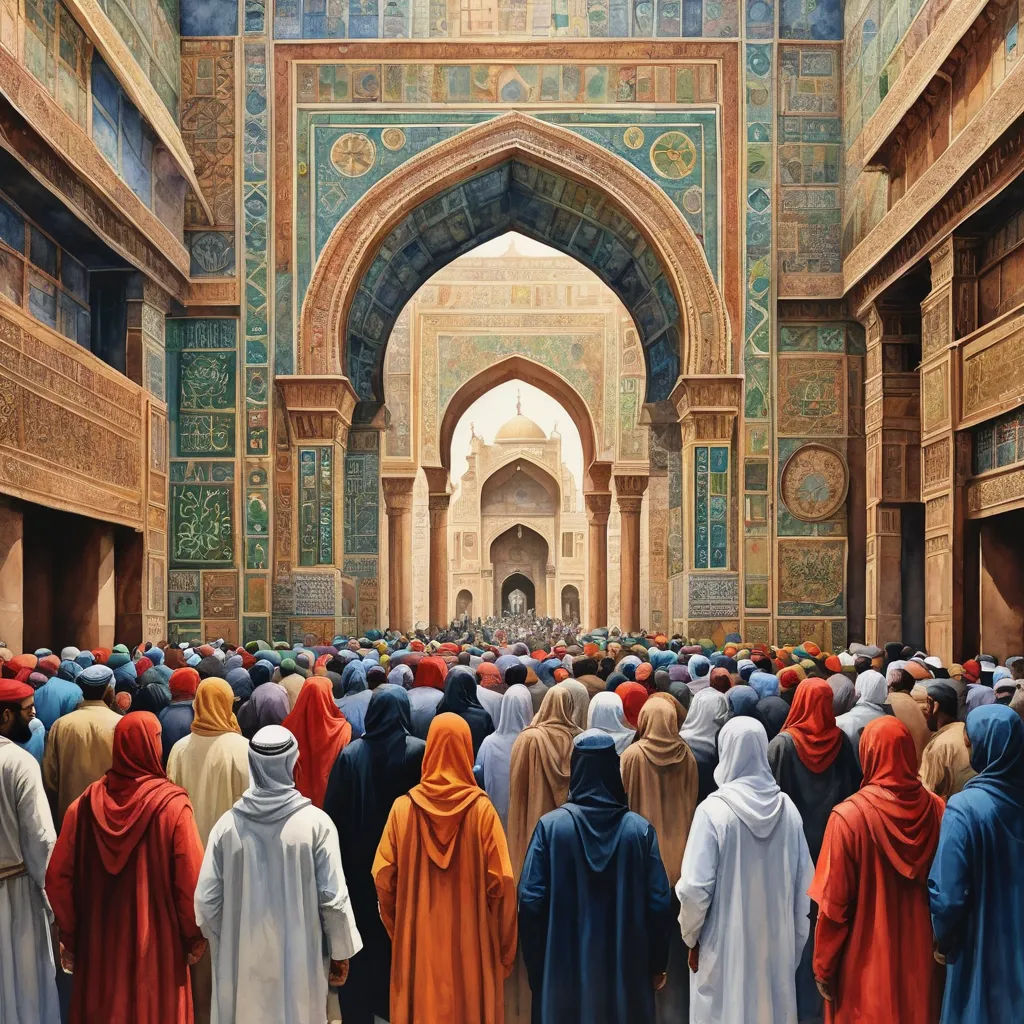
After years of dedication and hard work, Ilyas made his first significant contribution to mathematics. His discoveries were acclaimed throughout the Caliphate, and he was praised for his brilliance.
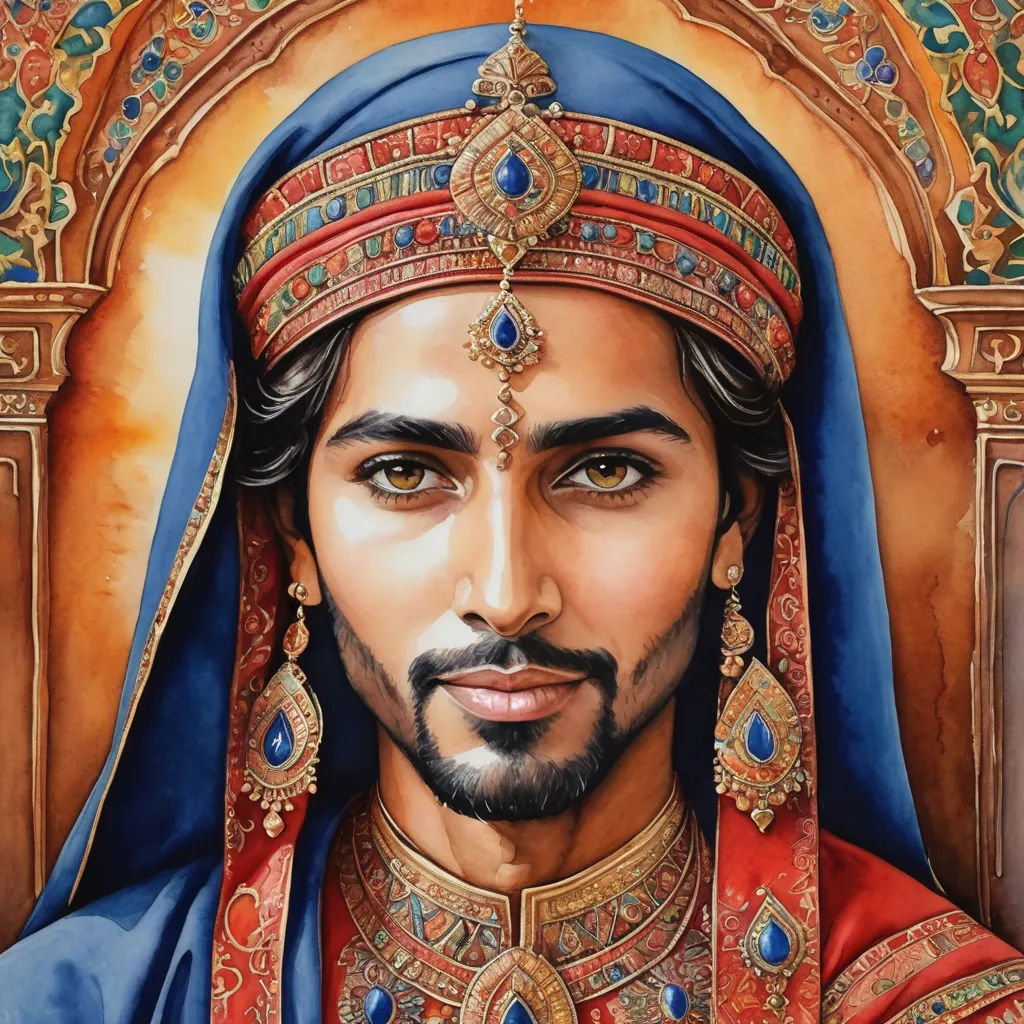
Ilyas then turned his interest towards the arts. He was fascinated by the intricate Islamic art adorning the structures of the Caliphate. Here he met Zainab, a talented artisan.

Under Zainab's guidance, Ilyas learned the delicate art of calligraphy and geometric patterns, adding another feather to his cap. His work started gracing the walls of many majestic buildings.

Ilyas' journey continued as he traversed through the Caliphate, learning, exploring, and contributing. His name became synonymous with knowledge and creativity, earning him respect and admiration.
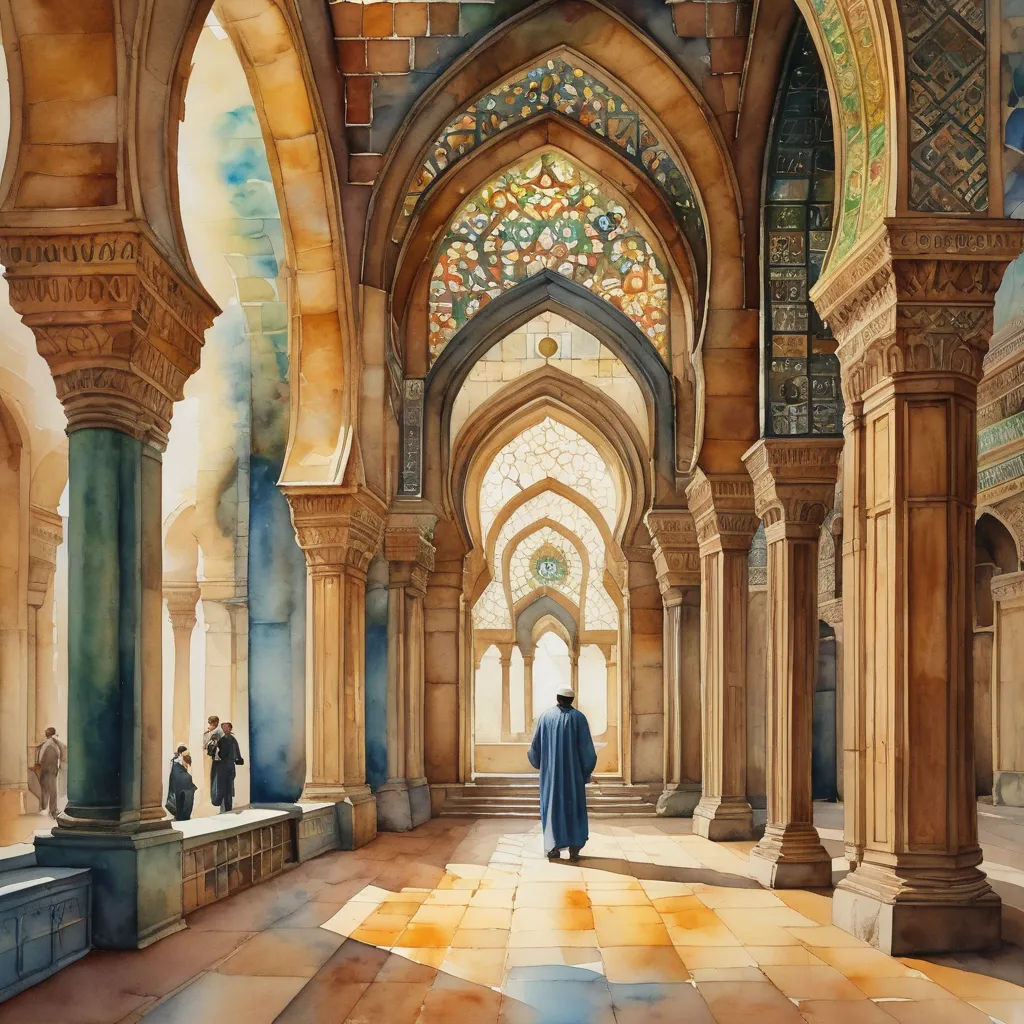
The young adventurer also deeply valued the teachings of Islam. He often visited the grand mosque in Baghdad, where he met Imam Abdullah, a learned religious scholar.

From Imam Abdullah, Ilyas learned about the moral and ethical teachings of Islam. The Imam's wisdom added a new dimension to Ilyas' understanding of the world.
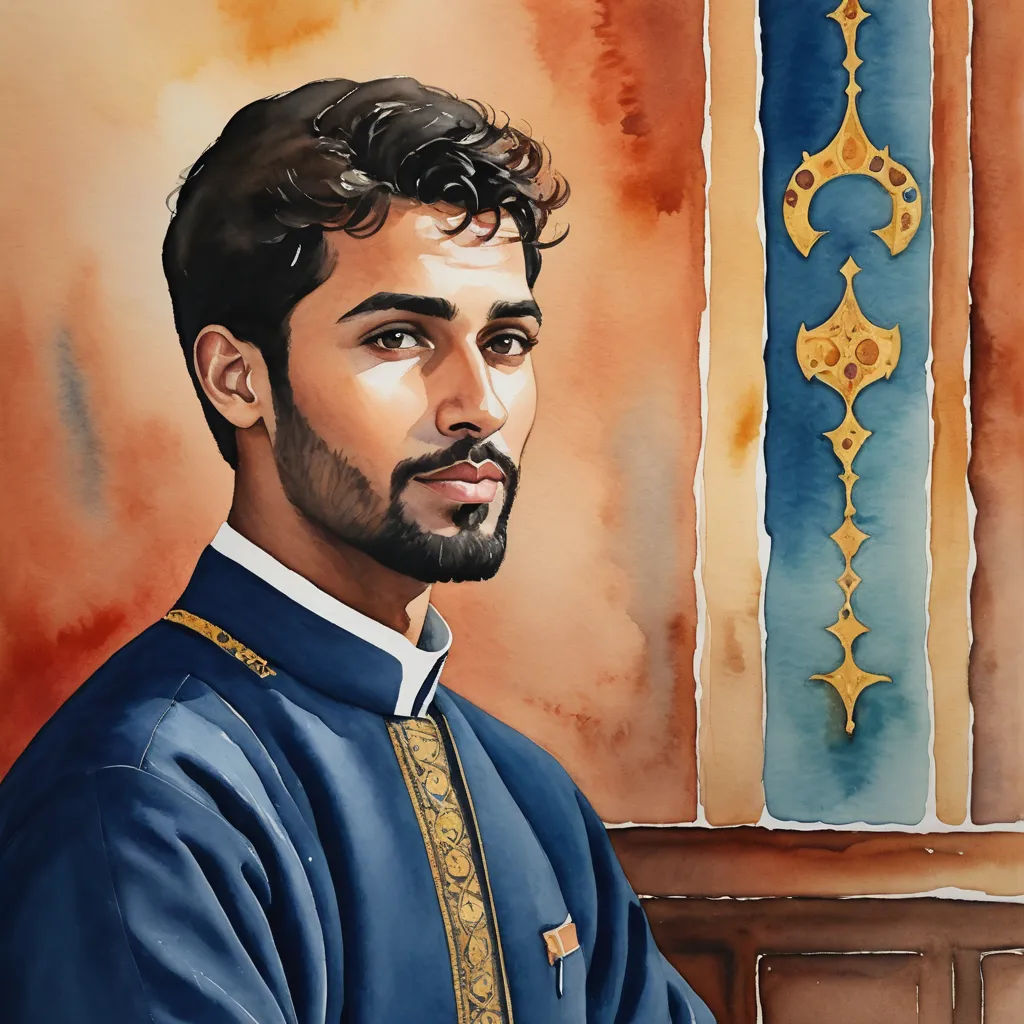
Ilyas' journey was not just about acquiring knowledge; it was also about sharing it. He often held public lectures, inspiring many young minds to follow their intellectual curiosity.
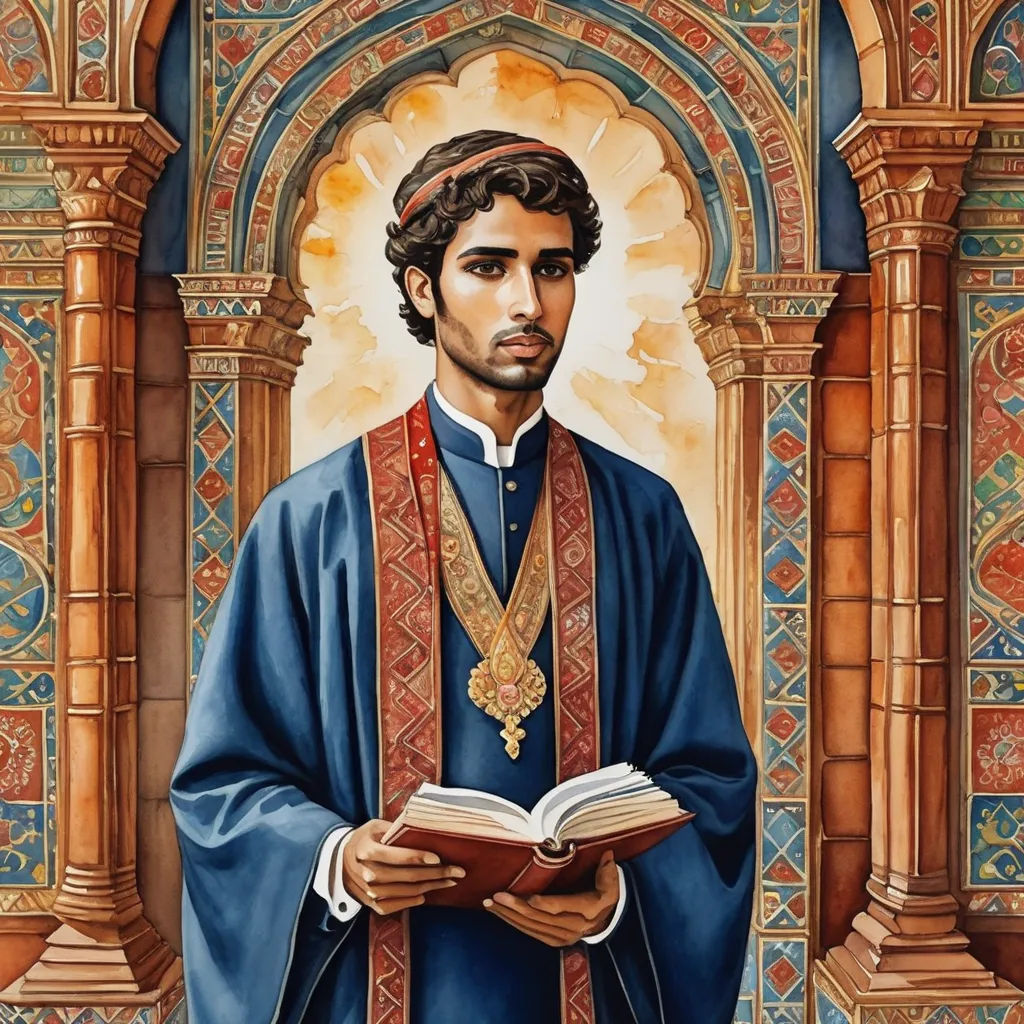
As years passed, Ilyas' reputation grew. He was invited by the Caliph to serve as an advisor. Honored, he accepted the position and used it to promote learning and creativity.

Throughout his journey, Ilyas never lost sight of his humble beginnings. He continued to learn, explore, and inspire. His love for knowledge and his commitment to sharing it were his guiding principles.
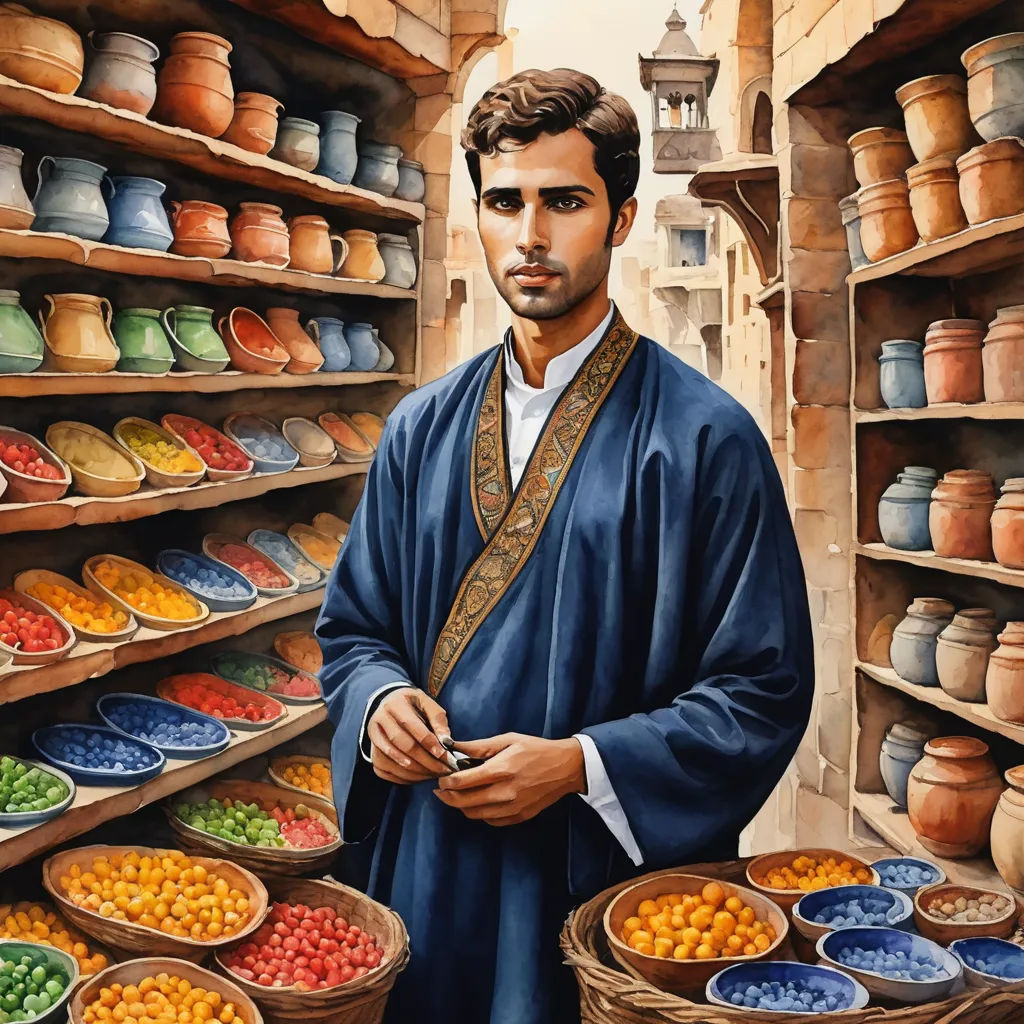
Ilyas became a beacon of the golden age of the Abbasid Caliphate. His life's journey was a testament to the intellectual richness of the time, inspiring generations to come.
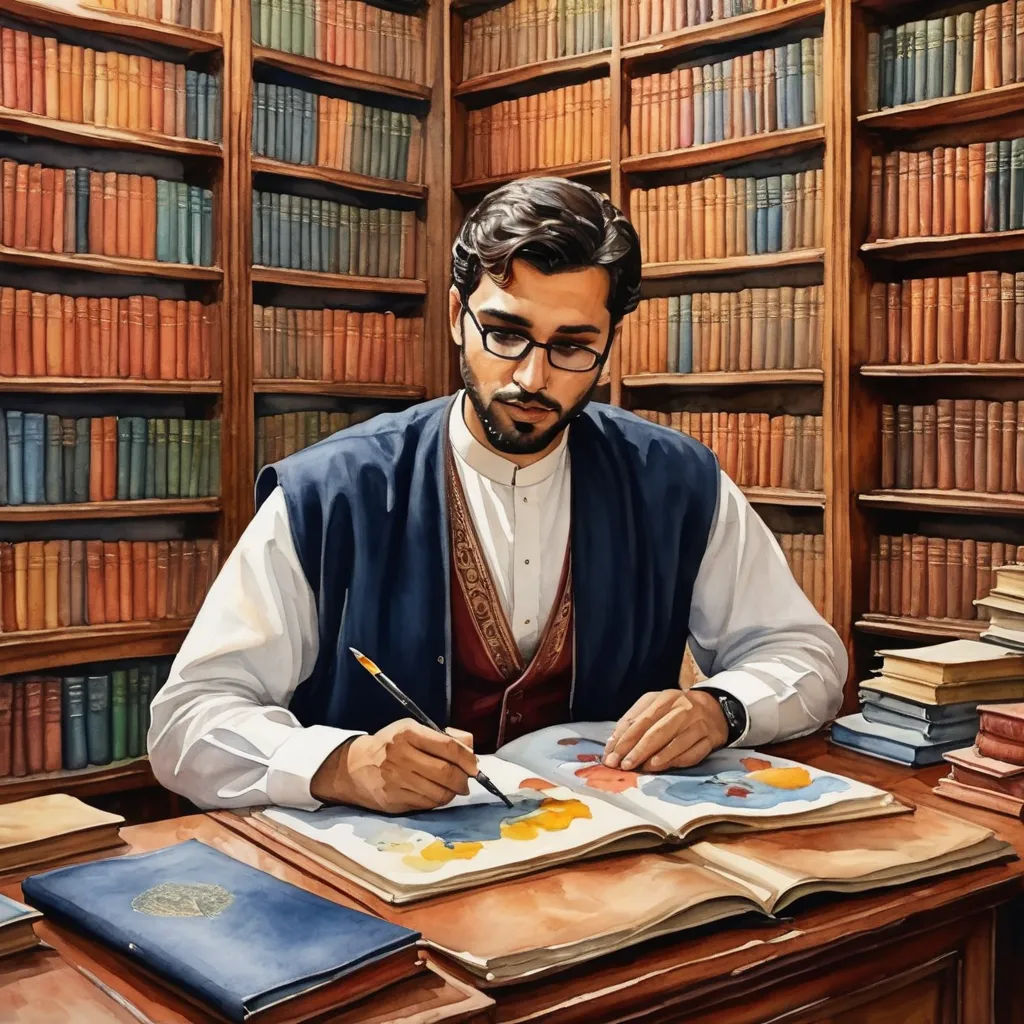
Towards the end of his life, Ilyas decided to pen down his experiences and knowledge in a book. He believed this would serve as a guide for future generations, encouraging them to seek knowledge and wisdom.

Ilyas devoted his remaining years to writing this book. He poured all his wisdom and experiences onto the pages, creating a masterpiece that would be revered for generations.

As his final days approached, Ilyas felt a sense of fulfillment. He had lived a life of learning, exploration, and contribution. His legacy was secure in the form of his book and his contributions to the Caliphate.
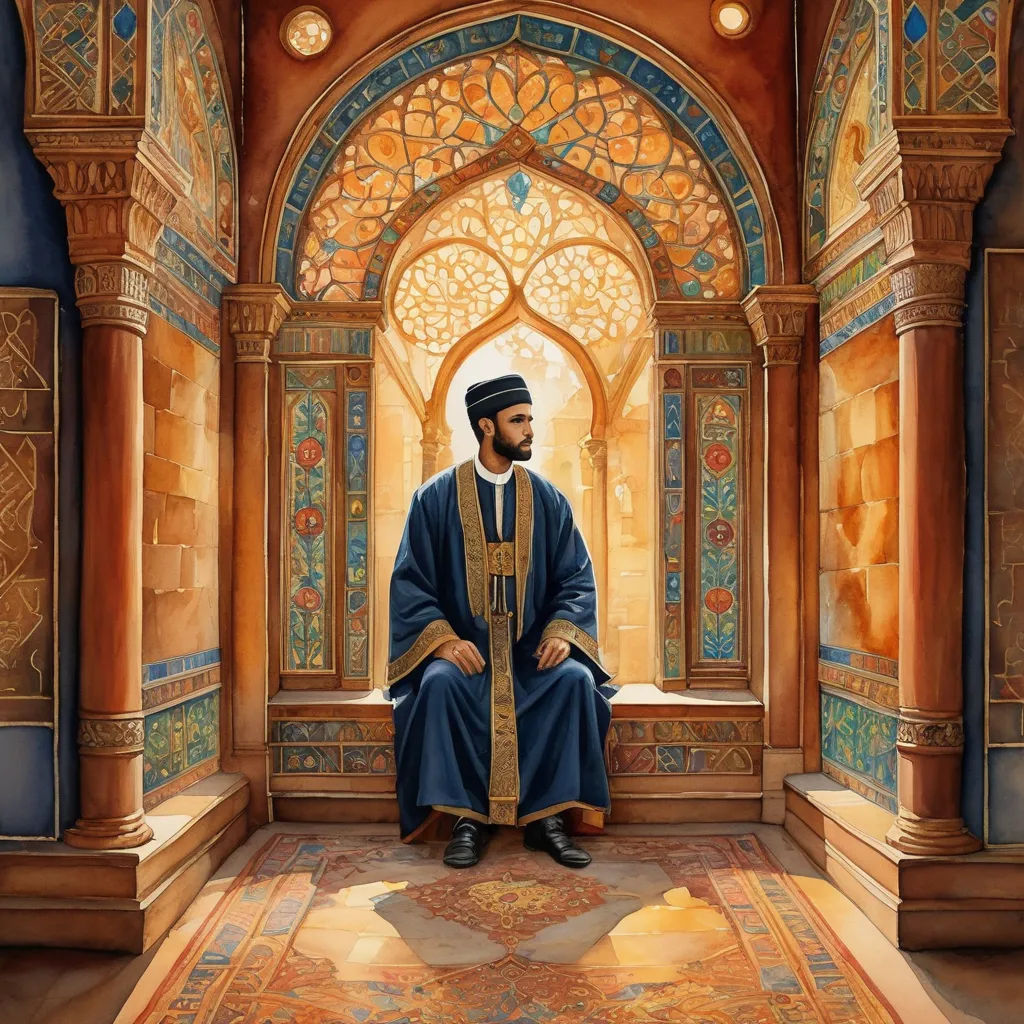
Ilyas passed away leaving behind a rich legacy. His book became a beacon of knowledge, guiding countless future scholars. His life served as a testament to the glory of the Abbasid Caliphate's golden age.
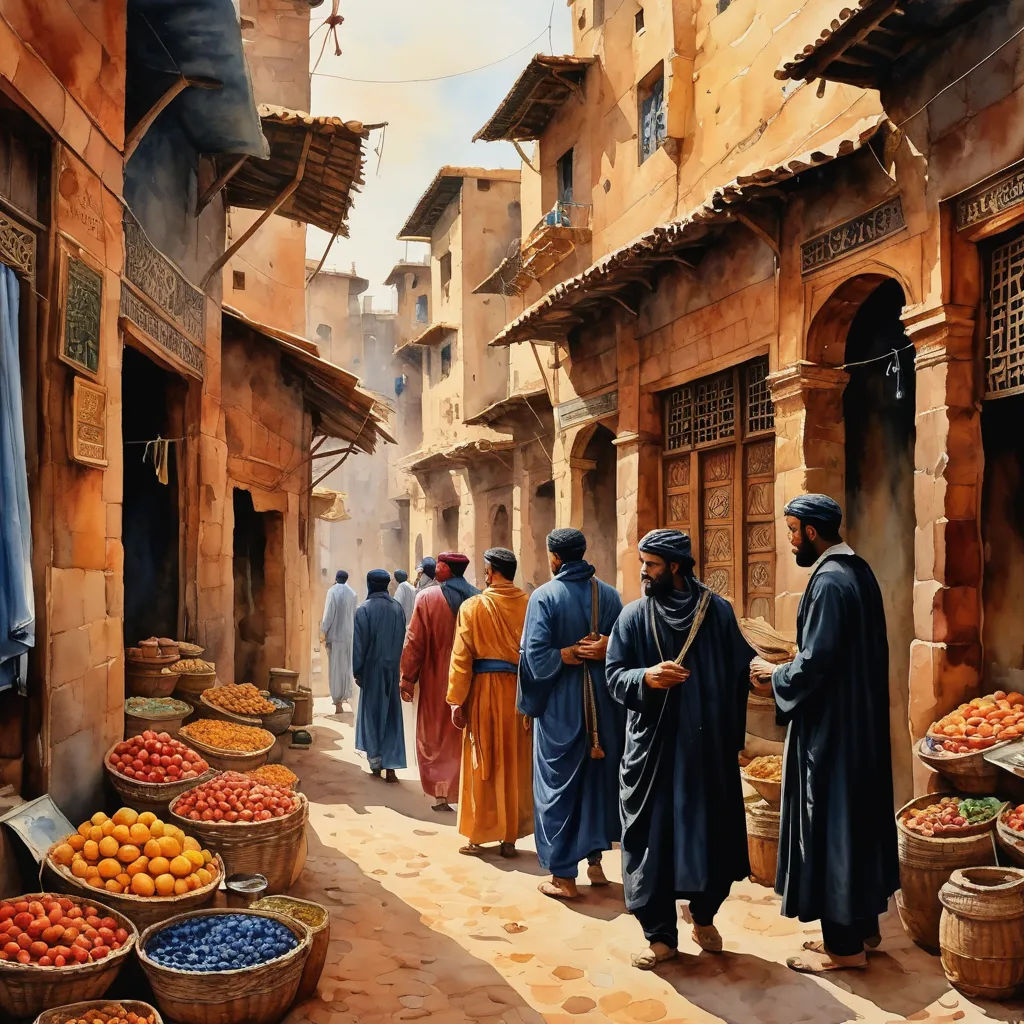
The tale of Ilyas, the young adventurer who became a beacon of knowledge and creativity, remains etched in the history of the Abbasid Caliphate. His journey continues to inspire, reminding us of the power of curiosity and the pursuit of knowledge.

Ilyas' story is more than a tale of a man's journey. It's a reflection of the Abbasid Caliphate's golden age - an era that celebrated knowledge, creativity, and the human potential for greatness.